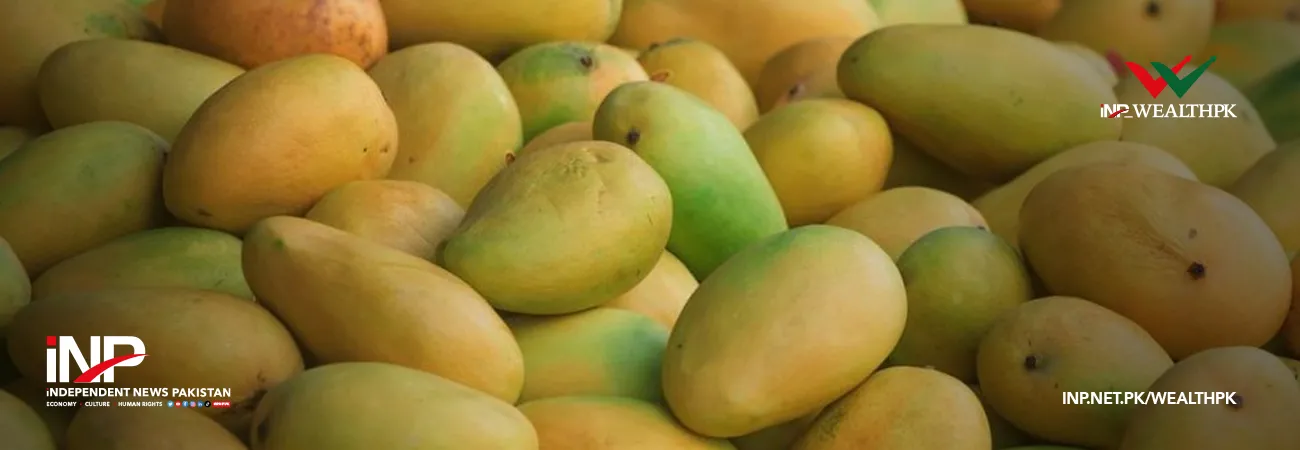INP-WealthPk
Azeem Ahmed Khan
Pakistan, one of the top producers of fruits and vegetables in the world, has the potential to generate substantial foreign exchange by exporting pulped products, using modern processing techniques, said an agricultural expert. Talking to WealthPK, Umair Piracha, who is based in Dubai, emphasized the need for the government to develop comprehensive policies that will increase exports and reduce reliance on imported pulps.
Expanding the pulping sector in Pakistan could help substitute imports and save foreign exchange too, he explained. “The domestic pulping industry is still using outdated technologies and processes, lacks proper research and development, and struggles with a weak marketing structure,” Piracha pointed out. With the global fruit and vegetable pulp market valued at approximately $2.92 billion and projected to grow annually by 6.45 until 2030 due to the rising popularity of the processed food, Piracha sees a significant opportunity for Pakistan to tap into this booming sector.
He observed that Pakistan currently exports a small portion of products such as orange juice and mango pulp and imported pulps, especially tomato pulp, for industrial purposes like ketchup production. Pakistan’s horticultural sector spans over a million hectares, with 714,702 hectares dedicated to fruit cultivation and 314,155 hectares to vegetables. However, Piracha said only 3% of the country’s produce is processed into value-added products, and a mere 30% of 100,000 tons annual pulping capacity is currently utilized.
The consultant urged the government to reduce import duties on modern pulping machines and encourage local manufacturing to boost pulp exports. He highlighted that domestic equipment does not meet international standards, leading the industry to depend heavily on imported machinery from countries like China and Italy. Additionally, over 60% of Pakistan’s installed pulping capacity uses outdated chemical preservation methods, which are not internationally accepted, he said.
Modern aseptic pulping plants are expensive, with total investments potentially exceeding a billion rupees in these facilities. He also pointed out that all tomatoes grown in Pakistan were intended for table consumption, which makes them unsuitable for producing tomato paste due to the insufficient solid content. This challenge, he added, is another roadblock for the local pulping industry. Despite rising global and domestic demand, Pakistan’s mango pulp exports amounted to only $4.16 million in 2022, a far cry from India’s $147 million.
India has strategically invested in improving its Chaunsa (mango) pulp production, promoting it through effective government policies, branding efforts, and quality control measures, he said. By the end of this decade, India’s pulp industry is estimated to reach $2.7 billion, he added. Experts estimate that if Pakistan could convert its wasted mango fruit — approximately 805,000 tons – into pulp, it could generate an exportable surplus of worth $500 million.
Discoloration problems, such as black fungus, have plagued Pakistani mango pulp exports, which are largely attributed to a lack of skilled workers and technical expertise, he said. Piracha further noted that despite the global market for orange juice concentrate worth over $1.3 billion, Pakistan’s exports in this sector were only $7 million in 2022. Factors like high electricity and fuel costs make Kinnow pulping operations more expensive, putting Pakistani products at a disadvantage on the international market, he said.
As a result, the domestic juice and beverage industry serves as the primary market for orange pulp, he added. Piracha emphasized that pulping could also reduce food waste by utilizing lower-grade produce, ensuring a year-round supply of industrial raw materials. He believed pulping could also boost the farmers’ incomes by turning low-grade fruits into valuable products, thereby promoting fruit and vegetable cultivation across the country.
Credit: INP-WealthPk













